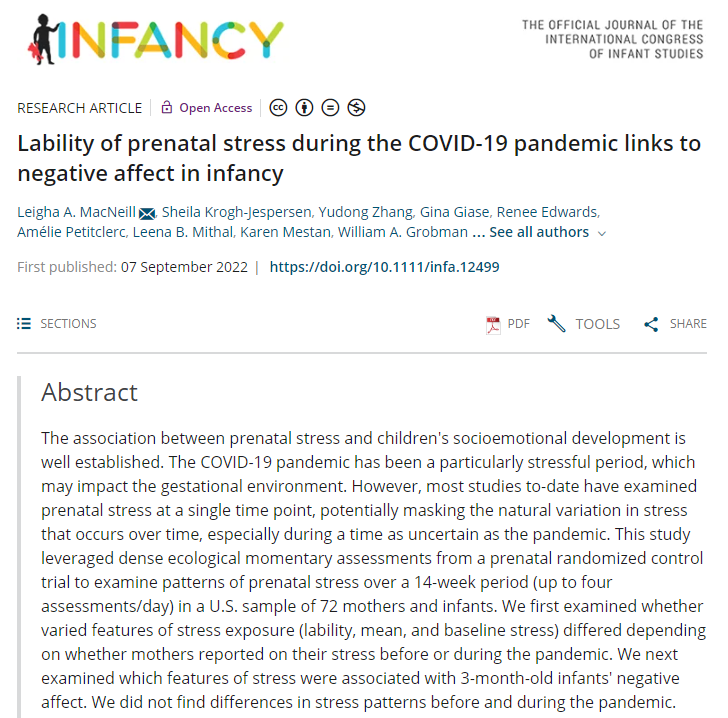A new study in the journal Infancy examines whether maternal stress levels and stability in those levels over time affect infant development. Participants in the study were part of a larger randomized controlled trial focused on reducing prenatal stress, selected from those planning to give birth at a large Midwestern university-affiliated hospital. The sample (n=72) was largely middle-to-upper class, but racially diverse (72 percent white, 10 percent Asian, 10 percent Black, 7 percent multiracial; 12 percent Hispanic/Latina). During the study, participants were texted up to four time a day for 14 weeks to complete a four-item stress survey. Infant data were collected by surveying mothers around three months after giving birth. The authors found that while average maternal stress levels were not related to negative infant affect (including measures of infant sadness, distress, and fear), larger fluctuations in maternal stress were. While the authors suggest additional research is needed to understand drivers of these fluctuations, they point to earlier research suggesting that more predictable maternal neurological signals might shape the organization of developing brains. Authors suggest that more research is needed to distinguish between the effects of daily and chronic stressors to better target stress reduction efforts.

